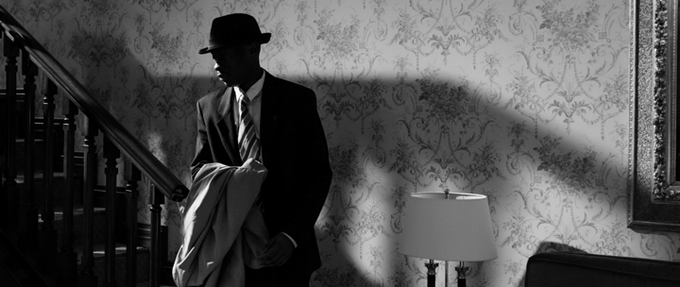Spies: From James Bond to John le Carre, they have formed the backbone of so many of our thrillers, our mysteries, and our fantasies.
But spies are real, and while the work they do may not be as flashy as the exploits of 007, their contributions to history are no less significant than their contributions to fiction.
These 15 books tell the true stories of real spies—some professionals, some thrust into the role—through meticulous historical research or, in some cases, in their own words.
The results are every bit as compelling, riveting, and unforgettable as any fictional adventure.
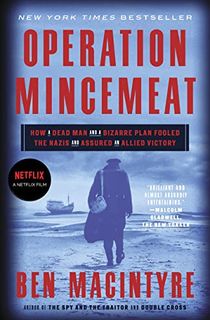
Operation Mincemeat
“Pure catnip for fans of World War II thrillers and a lot of fun for everyone else.” That’s how the Washington Post Book World described this “brilliant and almost absurdly entertaining” (New Yorker) true story, since adapted into a Netflix film starring Colin Firth.
Near the end of World War II, as Allied forces planned one of the most ambitious attacks in military history, two British naval officers came up with a daring plan to try to mislead the Nazis about where the assault would take place—a plan that relied upon the most unlikely of spies: a dead man.
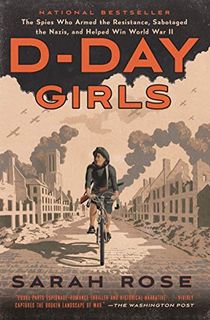
D-Day Girls
As World War II threatened to “set Europe ablaze,” Britain’s Special Operations Executive recruited 39 women to infiltrate France and attempt to help bring down the Nazis from within.
In a book that is “equal parts espionage-romance thriller and historical narrative” (Washington Post), author Sarah Rose explores the lives of these brave women, in stories that are “thoroughly researched and written as smoothly as a good thriller” (Publishers Weekly).
The result is a “gripping” tale filled with bravery, danger, “spies, romance, Gestapo thugs, blown-up trains, courage, and treachery (lots of treachery)—and all of it true” (Erik Larson, author of The Devil in the White City).
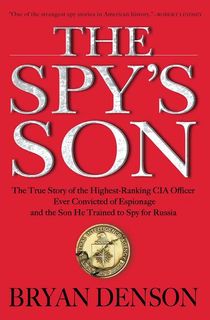
The Spy's Son
In 1997, Jim Nicholson became the highest-ranking CIA officer ever convicted of espionage, after years spent selling state secrets to Russia’s foreign intelligence service. Even once he was behind bars, however, he wasn’t finished.
Instead, he groomed his youngest son to take up where he had left off. Now, Pulitzer Prize finalist Bryan Denson gathers all the facts to tell “one of the strangest spy stories in American history” (Robert Lindsey, author of The Falcon and the Snowman).
A “poignant and painful tale of family love, loyalty, manipulation and betrayal” that is also “filled with fascinating details of the cloak-and-dagger techniques of KGB and CIA operatives, double agents, and spy catchers” (The Oregonian).
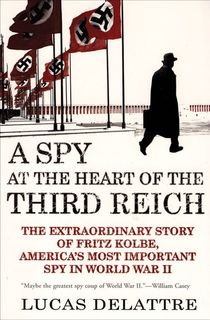
A Spy at the Heart of the Third Reich
“A richly detailed and well-crafted account of one of America’s most valuable German spies” (Library Journal), this impossible-to-put-down book has all the urgency of a spy novel, while telling the true story of a man who has been called one of the “most valuable agents during World War II.”
Fritz Kolbe was a bureaucrat in the German foreign ministry who had opposed the rise of Nazism in his native country. When he contacted Allied intelligence in 1943, it was the beginning of a campaign to funnel countless Nazi secrets into the hands of Allied forces.
Making use of recently declassified materials at the US National Archives—as well as the private papers left behind by Kolbe himself—Lucas Delattre has crafted a “disturbing and riveting biography” (Booklist) that reveals the details of this unforgettable story.
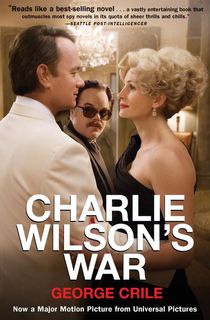
Charlie Wilson's War
Made into the 2007 movie of the same name starring Tom Hanks, Julia Roberts, and Philip Seymour Hoffman, this “tour de force of reporting and writing” (Dan Rather) may read like a fictional thriller.
However, it tells the unbelievable true story of an American congressman from Texas who used his position on the House Appropriations Committee to funnel hundreds of millions in aid to mujahideen freedom fighters in Afghanistan who were fighting against the Soviet Union.
The result? A “covert-ops chronicle” that is “practically impossible to put down” (Publishers Weekly), exploring an often-overlooked chapter in the history of America’s involvement in Afghanistan, the collapse of the Soviet Union, and the rise of radical Islamic military and terror groups in the Middle East.
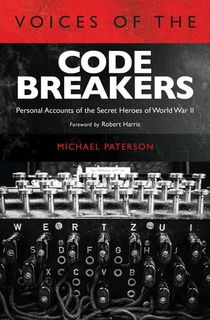
Voices of the Codebreakers
For years following the end of World War II, the continuing need for security meant that the full accomplishments of the Allied codebreakers, who obtained much of the information that helped win the war, were veiled in secrecy.
Since many of those documents were recently declassified, the stories of these unsung heroes have gained much greater recognition, making their way into films such as 2014’s The Imitation Game.
Michael Paterson’s unforgettable book goes a step further, combining heavily researched historical insight with the firsthand accounts of the codebreakers themselves, from the men and women who worked alongside Alan Turing at Bletchley Park to radio operatives in the jungles of Burma—all of them playing a vital role in the Allied victory.
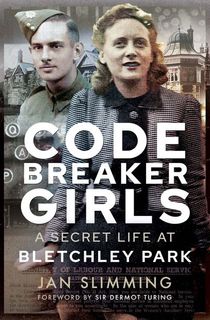
Codebreaker Girls
Speaking of Allied codebreakers, the vast majority of them were women, with more than 7,000 working in England’s Bletchley Park. Among these was Daisy Lawrence, a poor young woman who grew up in London prior to the outbreak of the war and found herself at the center of one of the war effort’s most secretive projects.
For decades after the war was over, she kept the secrets that she had been sworn to. Now, in this riveting book that “reads like fiction” (Books Monthly), her own daughter reconstructs her mother’s secret history, using photos, personal accounts, and historical research to recreate what life was like for Daisy Lawrence, and the many other women who worked in secrecy to help win the war.
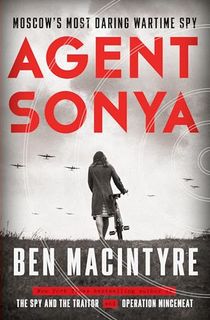
Agent Sonya
Named one of the Best Books of the Year by Kirkus Reviews, Library Journal, and Foreign Affairs, this “immensely exciting, fast-moving account” (Washington Post) from New York Times-bestselling author Ben Macintyre tells the unbelievable true story of one of the most significant spies of the Cold War in a book that “at once exalts and subverts the myths of spy craft” (New Yorker).
To all outward appearances, Ursula Burton is an unassuming woman leading an unassuming life in the English Cotswalds in 1942—few know that she is a Soviet agent codenamed Sonya, and one of the most hunted spies in the world.
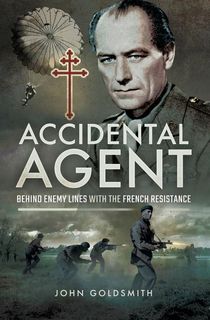
Accidental Agent
Here, told with “unconditional honesty” (Kirkus Reviews) are the recollections of an important asset in Allied intelligence, from his own memoirs.
John Goldsmith was raised in Paris and spoke fluent French, which made him an ideal candidate for parachuting into Nazi-occupied France during the Second World War.
There, he joined the French resistance, where he fought against the Germans in pitched battles, crossed the Pyrenees, and was captured by the Gestapo, pulling off a daring escape from the Hotel Continentale in Paris.
All these adventures and more are contained in his vivid memoir, which tells of these exploits as only the person who experienced them could.

Liar, Temptress, Soldier, Spy
Spies are not a new thing—they are as old as warfare itself. In this eye-opening New York Times bestseller, author Karen Abbott reveals the stories of four women who gathered intelligence for both sides during the American Civil War.
From a widow who seduced politicians in order to take secrets back to the Confederacy to the head of a sprawling Northern spy ring, these four women led dangerous, thrilling, sometimes deadly lives, and their stories are brought to life here in a “gripping page-turner that moves at a breathtaking clip” (Los Angeles Times).

The Scientist and the Spy: A True Story of China, the FBI, and Industrial Espionage
One of the most significant intelligence issues facing the United States at present is an ongoing rivalry with China over trade secrets and industrial espionage.
In this “riveting whodunit” (The Washington Post), Pulitzer Prize finalist Mara Hvistendahl recounts the story of Robert Mo, a Florida resident who took a job with a Chinese agricultural company and became the target of a far-reaching FBI investigation, as well as a pawn in an international game of secrets.
By following this “compelling tale of industrial espionage” (Library Journal), she also reveals the truth surrounding America’s industrial rivalry with China, “which speaks to the larger geopolitical tensions shaping our time” (Bookpage).
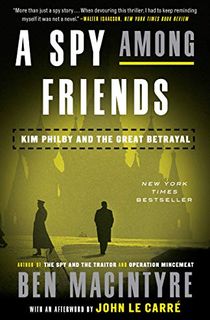
A Spy Among Friends
Now an MGM+ series starring Damian Lewis, Guy Pearce, and Anna Maxwell Martin, Ben Macintyre’s bestselling tale of the Cold War’s most notorious spy “reads like a story by Graham Greene, Ian Fleming, or John le Carre, leavened with a dollop of P. G. Wodehouse” (New York Times Book Review).
During the hottest part of the Cold War, Kim Philby rose to the top ranks of Britain’s intelligence services—yet the entire time, he was actually acting as a double agent. How could such a thing happen, and how did he almost get away with it?
Find out in this thrilling account named one of the Best Books of the Year by the New York Times Book Review, Washington Post, Entertainment Weekly, and Shelf Awareness.
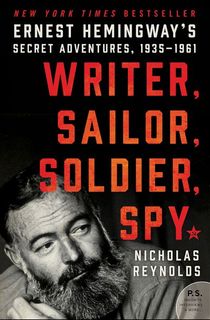
Writer, Sailor, Soldier, Spy
In this “engrossing story” (Kirkus Reviews), Nicholas E. Reynolds, a former historian at the CIA Museum, “looks among the shadows and finds a Hemingway not seen before” (London Review of Books).
Everyone knows that Ernest Hemingway was the troubled, Nobel Prize-winning author of such beloved books as The Old Man and the Sea, A Farewell to Arms, For Whom the Bell Tolls, The Sun Also Rises, and others.
But was he also a spy? That’s what this volume of “fascinating new research” (New York Review of Books) reveals, as Reynolds peels back what we know about Hemingway’s life to shed new light on secrets that may have contributed to his legendary fiction—and his equally infamous death.
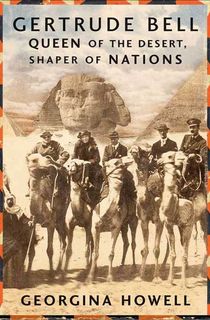
Gertrude Bell
Called “the female Lawrence of Arabia,” Gertrude Bell was “a scholar and a spy whose extraordinary career spanned the heyday of the British Empire and culminated in the creation of Iraq” (Washington Post Book World).
An army major, advisor to the viceroy of India, an agent of the Cairo Intelligence Office, and much more, Gertrude Bell was an adventurer in a mold few others have ever matched—she is said to have taken off her skirt and climbed the Alps in her underclothes.
And, in this “monumental biography” (New Yorker), her unforgettable story can finally be told in full.
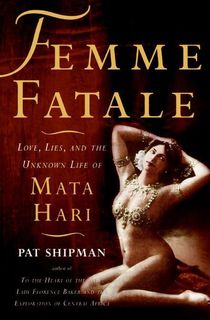
Femme Fatale
Mata Hari is a name that is virtually synonymous with the word spy. Her story has been told and retold so many times that it has practically become legend.
Now, in this “engrossing” (Bloomberg News) new account of her life, “told with clarity and understanding” (Kirkus Reviews), author Pat Shipman recounts the real story of one of history’s most notorious spies. Executed in 1917 for treason, Mata Hari led an incredible life, traveling pre-war Europe to fraternize with some of the most important people of the age.
But what do we really know about her? Was she a spy the whole time, or has her story been overblown? That’s what you’ll learn in this book, which is “both suspenseful and shocking” (Los Angeles Times).
Featured image: Pexels / Canva
